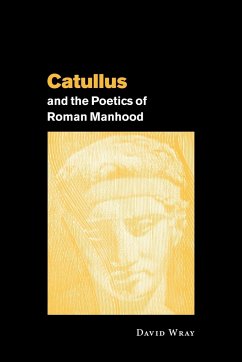
The Poetics of Impersonality
T. S. Eliot and Ezra Pound
Versandkostenfrei!
Versandfertig in über 4 Wochen
40,99 €
inkl. MwSt.

PAYBACK Punkte
20 °P sammeln!
'The local analyses, the verbal felicities, the luminous details of Maud Ellmann's book are striking and inventive. The great strength of the book, as I see it, lies in the productive convergence of post-structuralist theory and a scrupulous historical sense ... [The reading of the poems] is original, supple, and provoking.' Michael Levenson, Professor of English, University of Virginia 'Maud Ellmann's book is vivid and original. The author is very intelligent and has done her reading with resourcefulness and penetration.' Frank Kermode In this classic work, Maud Ellmann examines T. S. Eliot's...
'The local analyses, the verbal felicities, the luminous details of Maud Ellmann's book are striking and inventive. The great strength of the book, as I see it, lies in the productive convergence of post-structuralist theory and a scrupulous historical sense ... [The reading of the poems] is original, supple, and provoking.' Michael Levenson, Professor of English, University of Virginia 'Maud Ellmann's book is vivid and original. The author is very intelligent and has done her reading with resourcefulness and penetration.' Frank Kermode In this classic work, Maud Ellmann examines T. S. Eliot's and Ezra Pound's criticism in terms of what she calls the 'poetics of impersonality'. She convincingly shows that Eliot's and Pound's attempts to overcome personality merely reinstated it in a new guise. And her superb and entirely original readings of the major poems of the modernist canon have earned a lasting place in criticism. Following an analysis of Eliot's relation to Bergson, Ellmann goes on to analyse Eliot's 'Tradition and the Individual Talent' and the later After Strange Gods, the early poems, The Waste Land, and Four Quartets. She then turns to Pound's Personae, particularly 'Mauberley', and the Cantos. Ellmann looks for the contradictions inherent in modernist literary ideology and deftly teases out their implications. Stylish and perceptive, this book marked the debut of a major literary critic, and it has as much resonance today as it did on first publication. Maud Ellmann is currently Randy L. and Melvin R. Berlin Professor in the Department of English Language and Literature at the University of Chicago. She has previously held appointments at the Universities of Southampton, Cambridge, and Notre Dame. She is the author of The Hunger Artists: Starving, Writing, and Imprisonment; Elizabeth Bowen: The Shadow across the Page (winner of the British Academy's Rose Mary Crawshay Prize); and Nets of Modernism: Henry James, Virginia Woolf, James Joyce, and Sigmund Freud.












